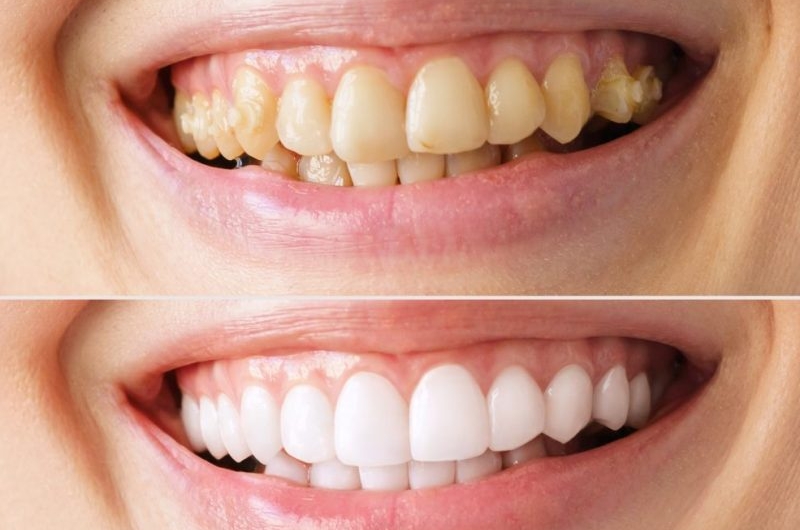Enamel Erosion: The Cause and the Cure

Understanding Tooth Enamel and Its Erosion
The enamel of our tooth is the hardest substance in our body. It’s even stronger than a diamond. Over a period of time, if the tooth enamel isn’t taken care of, the enamel starts eroding, leading to sensitivity. There is no one reason for enamel erosion. The tooth enamel also erodes due to certain lifestyle habits, medical conditions, aerated drinks, and food choices.
Teeth being the hardest substance of our body, we take it to extreme levels during our lifestyle just to showcase our tooth strength. Since enamel is a mineral, it doesn’t regenerate. At a point, when it’s damaged, chipped, broken, or worn out, that loss becomes everlasting. As hard as tooth enamel is, it can sustain a lot of damage, and erosion ranks as the most common type of tooth enamel damage. The tooth surfaces must deal with a constantly changing environment. Despite eating and drinking multiple times a day, we miss out on the acids released by food items that lead to the weakening of tooth enamel.
Enamel, being the hardest substance in the body, can still be harmed by a pH environment lower than 5.5, with pH 0 being the most acidic. If these harsh conditions occur regularly, the top layer of your tooth can be eroded away soon.
What Causes Enamel Loss?
The main cause of enamel loss is acid in food and drinks. Acid on teeth acts roughly on your teeth, making them vulnerable to the loss of enamel.
Tooth enamel doesn’t erode only due to acid but also due to these reasons:
Dehydration: Leads to low salivary flow and dry mouth, which contributes to the loss of enamel.
Acid Reflux: A digestive disease in which stomach acid or bile irritates the food pipe lining, eventually leading to the loss of enamel.
Gastrointestinal Tract Issues: Might also lead to the loss of tooth enamel.
Acidic Medicines: Taking acidic medicines such as aspirin or antihistamines may contribute to enamel loss.
Genetics: Loss of enamel can be natural at times due to genetic factors.
Stress and Jaw Clenching: Some people clench their jaw during sleep, leading to enamel erosion and jaw pain in the long run.
Bruxism: Grinding of the teeth, a common habit when people get angry, might also result in the loss of tooth enamel.
External Factors Resulting in Loss of Enamel
Foods: Including acidic fruits such as citrus fruits, apples, and tomatoes.
High Vinegar Usage: Risky for teeth.
Fizzy Drinks and Alcohol: Unhealthy for teeth as well as overall health.
Lemon Slice in Hot Water: Often taken for its health benefits, but the pH of lemon juice is around 2, so adding this to hot water creates a highly acidic environment. As a comparison, the pH of soda usually sits around 2.5.
Flavored Water, Sports Drinks, and Preserved Fruit Juices: Might lead to the loss of enamel.
Excess Smoking: Can affect your teeth, making your enamel weak.
How to Reduce or Prevent Loss of Enamel?
Avoid regular intake of food and drinks that are acidic. If you wish to drink an aerated drink, always use a straw to reduce the direct contact of fizz with your teeth.
Brush your teeth with fluoride toothpaste twice a day for 2 minutes with a delicate-bristled brush.
Drink enough water and stay hydrated to allow normal salivary flow.
Chewing sugar-free gum may help in balancing the pH level of your mouth.
Do not brush immediately after meals. Wait at least an hour before doing so.
The grinding of teeth can be reduced by wearing a teeth guard.
Visit your dentist regularly for dental check-ups.
Keep these points in mind for the cause and cure, and consult your dentist as soon as you feel irritation in your teeth or experience sensitivity. Feel free to consult our orthodontists at Smile Craft. Book your appointment today!
